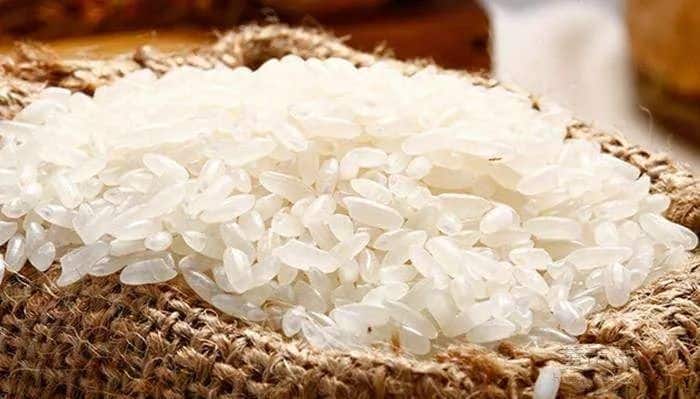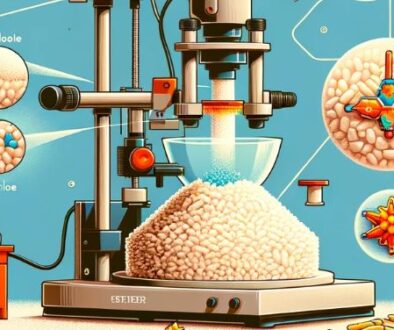Nutritional Value and Health Benefits of Rice Protein
Explore the nutritional benefits of rice protein with low antigenicity and high biological value. Ideal for health-conscious diets. Discover more!
Rice Protein
Safety concerns in the production and processing of animal proteins have sparked widespread attention, leading many health-conscious individuals to focus on plant-based protein sources. Among these, rice protein has gained significant attention both domestically and internationally due to its high nutritional value and low antigenicity. What makes rice protein so popular?

Low Antigenicity of Rice Protein
The primary value of rice protein lies in its low antigenicity, lack of interference from colorants, a mild and non-irritating taste, and its high nutritional value. The low antigenicity of rice protein distinguishes it from other plant proteins. Many plant proteins contain anti-nutritional factors, such as protease inhibitors and lectins found in soybeans and peanuts, which can be harmful to the body. Soybeans also contain factors causing gastric distension, such as cottonseed sugars and watercress sugars. In contrast, rice protein lacks similar sensitizing factors, making it safe and reliable. Therefore, rice is the only grain exempt from allergy testing.
High Biological Value of Rice Protein
Rice protein has a well-balanced amino acid composition closely resembling the ideal pattern recommended by WHO/FAO. It is rich in essential amino acids, particularly lysine, exceeding the content found in other grains. While slightly deficient in lysine, isoleucine, and threonine compared to ideal protein, rice protein’s various essential amino acids are more abundant than those in wheat protein, making it nutritionally superior to wheat protein and approaching ideal protein. With a Biological Value (BV) of 77, rice protein not only ranks first among various cereal crops, including soybeans, but also rivals the BV of white fish (76), shrimp (77), and beef (69).

Nutritional Supplement of Rice Protein
Due to its low antigenicity and high nutritional content, rice protein is widely used in the development of high-protein, low-allergen infant formula rice powder for infants with sensitive diarrhea. Additionally, in pet food, rice protein serves as an excellent protein source with fewer anti-nutritional factors compared to soy, reducing gastrointestinal bloating in small animals and promoting protein digestion and absorption. Concentrated rice protein isolates are used in aquaculture feeds, contributing to water clarity, high digestibility, reduced excretion in aquatic animals, and lowered water pollution.
Functional Peptides of Rice Protein
Hydrolysates of rice protein contain various physiologically active small peptide segments with activities such as blood pressure reduction, anti-aging, anti-melanin, and immune regulation. Researchers from Japan’s Menard Cosmetic Co., Ltd. extracted a novel peptide substance from rice protein, effectively inhibiting common signs of skin aging, such as wrinkles and sagging. Rice protein, a storage protein found in by-products of yellow wine processing, has medicinal and health value, exhibiting effects such as ACE inhibition, blood pressure reduction, physiological function regulation, and disease prevention. Enzymatic hydrolysis of rice protein can isolate flavor peptides that can substitute for monosodium glutamate (MSG). Adding these peptides to poorly palatable protein feeds, such as rapeseed meal and cottonseed meal, effectively masks bitterness, enhances feed viscosity, and improves palatability. This application significantly increases animal feed intake, ensuring a safe and reliable source without harmful effects. When these peptides are chelated with trace minerals, mineral competition is reduced.
Elevate Your Nutrition with ETprotein’s Exceptional Rice Protein
Unveil a new era in nutritional enhancement by choosing ETprotein’s premium rice protein. Renowned for its low antigenicity and high biological value, ETprotein’s rice protein stands out for its exceptional quality and safety. Elevate your dietary choices with a product that aligns seamlessly with health-conscious lifestyles. Whether you are seeking a reliable source of essential amino acids or exploring functional peptides for skincare, ETprotein’s rice protein offers unparalleled excellence. Embrace the future of health and nutrition with ETprotein – where quality and well-being converge.
China, as a major rice producer, boasts abundant rice protein resources. The research and development of rice protein not only provide a novel plant-based protein resource but also promote the deep processing of rice, enhancing economic benefits. Moreover, small peptide segments generated from enzymatically hydrolyzed rice protein exhibit various biological activities, offering promising supplements for animal husbandry, the food industry, and human nutritional health. The potential applications of rice protein are vast and promising.














